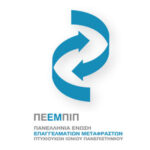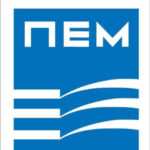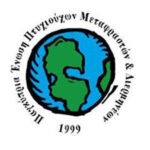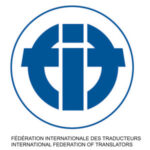WHEN IS IT USED?
This type of interpreting is available at international conferences with participants of different nationalities where there is more than one working language.
THE HOW
Conference interpreting is usually simultaneous interpreting and requires specialist equipment (booths, microphones, headphones). There is one booth in the room for each working language. Interpreters work in the booths and delegates, using special headsets, tune into the feed from the relevant booth depending on which language they want to hear.
WHAT'S NEEDED
Conference interpreting is a demanding sector since in addition to language skills it also requires special training, development of techniques and knowledge of specialised topics. Moreover, it is important to stress that it is based on team work. Since most conferences are usually long, interpreters work in groups of 2 and alternate between each other every half hour. This is because interpreting is a highly demanding mental task and regular rotation is necessary to maintain the overall level of performance unabated.
In order to provide this service I collaborate with colleagues whom I trust and know in person. All of us are well-trained in this sector, with the relevant corresponding academic training and considerable work experience in this field.
WHY IS IT IMPORTANT TO HAVE INTERPRETING AT A MEETING
The role of interpreting at international conferences is important for two main reasons.
BETTER UNDERSTANDING, GREATER AWARENESS AMONG THE PUBLIC, BETTER PARTICIPATION IN THE PROCEEDINGS
The first takes things from the audience’s perspective. Even if the audience knows foreign languages to a satisfactory level, let us not forget that the subject matter of conferences is as a rule specialised and speakers in each sector use technical language and terminology in their presentations. If one takes into account the long duration of the proceedings, you can start to grasp how difficult it is for the listener to mentally process all the information while keeping his or her level of concentration intact and undiminished under those conditions. The interpreter can make things easier, take a great deal of the effort of things for the listener, by explaining to him/her the complex issues presented in his/her mother tongue. This ensures a better understanding of the issues being discussed, greater awareness among the public and better participation in the proceedings.
BETTER PRESENTATIONS BY SPEAKER SINCE THEY ARE TALKING IN THEIR MOTHER TONGUE
The second reason relates to the speakers themselves. It is a fact that we always express ourselves better in our mother tongue. On the other hand, a successful presentation should sound natural, be immediate and the words should just flow. When getting up onto the podium, a speaker seeks to “touch” the audience with his/her words, to speak to their soul and mind, to inspire them and to make them embrace his/her ideas and views. Preparing an effective presentation/speech is already a demanding and difficult enough process on its own. So why should we further burden the speaker with the language factor by risking any non-natural use of words overshadowing the results of the entire effort? A talk is more effective in one’s mother tongue, which is why delegates are always recommended to express themselves in their mother tongue and trust the professional interpreter to correctly convey their message.
ADVANTAGES OF PROFESSIONAL CONFERENCE INTERPRETING

A professional conference interpreter:
-
has been specially trained and has developed a set of skills and techniques which allow him/her to meet exacting conference standards.
- is well-informed about the specialised topics being presented at conferences.
- is familiar with the terminology and technical jargon used in various fields.
- faithfully and accurately presents the views of each speaker without distorting, adding or removing information, while complying with the principle of impartiality.
- maintains absolute confidentiality about the information he/she learns when performing his/her duties.







